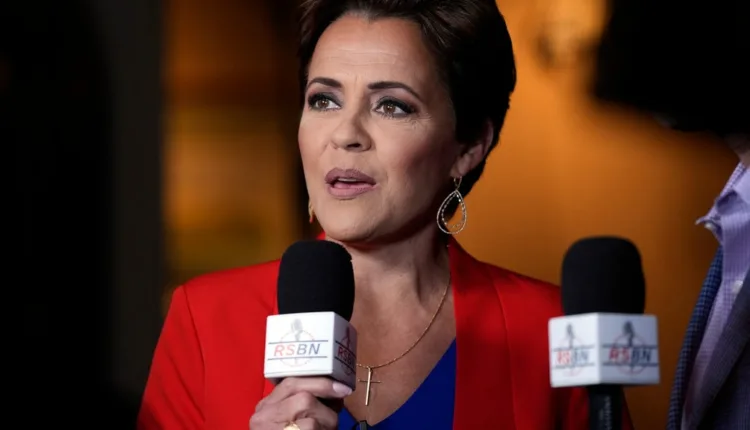
TL/DR –
US Senate candidate Kari Lake has stated that she does not believe children of undocumented immigrants born in the US should automatically receive citizenship. She aligns with former President Donald Trump on this issue, who has also advocated for ending birthright citizenship. This stance challenges the 14th Amendment’s Citizenship Clause, which recognizes anyone born in the US as a citizen, a rule that can only likely be altered through a constitutional amendment.
Kari Lake Joins Donald Trump in Opposing Citizenship for US-Born Children of Undocumented Immigrants
Senate candidate Kari Lake aligns with former President Donald Trump’s stance against automatic citizenship for US-born children of undocumented immigrants. Lake voiced her position during a Univision Arizona interview, stating she didn’t view the children of undocumented immigrants as “natural born citizens”.
Lake’s campaign declined to clarify her position. However, previous tweets suggest she supports ending automatic citizenship for migrant children.
14th Amendment’s Citizenship Clause
The 14th Amendment’s Citizenship Clause stipulates that individuals born in the United States are automatically citizens. This Reconstruction-era amendment was enacted to counter states denying citizenship to formerly enslaved people born within US borders.
The amendment serves as a response to the Supreme Court’s Dred Scott decision in 1857, which ruled that freed or previously enslaved individuals could not be American citizens, necessitating congressional intervention.
Challenges to Birthright Citizenship
Ending birthright citizenship would likely require a constitutional amendment. Trump has repeatedly sought to end birthright citizenship, arguing that the 14th Amendment doesn’t apply to the citizenship of undocumented immigrants’ children. Nonetheless, these plans never materialized into an executive order.
Other Republicans, including Ron DeSantis, Vivek Ramaswamy, and Tim Scott, also support eliminating birthright citizenship for migrants’ children.
The Supreme Court’s United States v. Wong Kim Ark Decision
The amendment’s relation to immigration was cemented by the Supreme Court’s United States v. Wong Kim Ark ruling in 1898. The court ruled that Ark, born in San Francisco to Chinese citizens, was automatically a citizen under the 14th Amendment’s Citizenship Clause.
Despite the original purpose of the 14th Amendment, it’s unlikely to be amended to address modern immigration issues, according to Arizona State University law professor Paul Bender. Bender argues against any constitutional basis for changing birthright citizenship.
Campaign trail updates: Kari Lake attacks Joe Biden on border issues and secures endorsement from a top GOP senator
—
Read More US Media News
